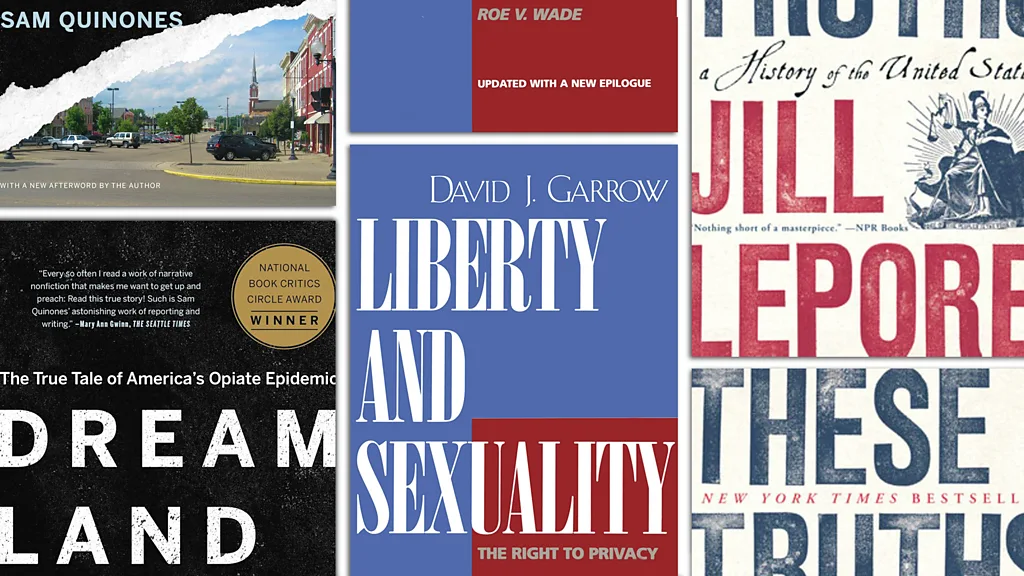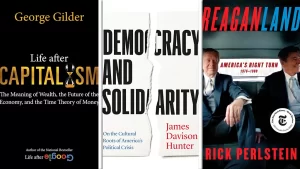
As the 2024 US presidential election approaches, the nation finds itself at a crossroads, grappling with a myriad of issues from economic concerns to cultural divides. To navigate the complexities of these debates, here are six insightful books that provide valuable context and perspectives on the United States and its political landscape.
1. These Truths: A History of the United States by Jill Lepore (2018)
In her sweeping narrative, Harvard historian Jill Lepore examines the evolution of the United States from the 16th century to 2018. Drawing from the Declaration of Independence, she explores the foundational ideals of equality and rights. Lepore captures the essence of a nation shaped by conflict, diversity, and immigration. Critics note that the book reflects not a linear path of progress, but a tumultuous history marked by contradictions and struggles. It serves as an essential civic resource, illuminating the ongoing challenges of defining what it means to be “We the people.”
2. Reaganland: America’s Right Turn 1976-1980 by Rick Perlstein (2020)
Rick Perlstein’s fourth volume on the rise of conservatism provides a vivid account of a transformative period in American politics. Beginning with the 1976 presidential campaign, Perlstein chronicles the events and movements that shaped the conservative landscape, including the Equal Rights Amendment and supply-side economics. His narrative reveals the societal shifts that fueled public debate and how these changes continue to influence contemporary politics. For a deeper understanding, follow this with Max Boot’s biography of Ronald Reagan, which further explores the connections between Reagan’s policies and modern GOP dynamics.
3. Democracy and Solidarity: On the Cultural Roots of America’s Political Crisis by James Davison Hunter (2024)
James Davison Hunter, a leading cultural historian, delves into the roots of America’s current political turmoil in this thought-provoking work. He contrasts the ideal of equality with the reality of systemic exclusion, examining how cultural foundations shape political life. Hunter argues that America’s sense of solidarity has unraveled, particularly as societal values evolve and face challenges. His exploration of cultural narratives offers insight into the underlying forces that continue to divide the nation, making this book crucial for understanding today’s political climate.

4. Liberty and Sexuality by David J. Garrow (1998)
David Garrow’s comprehensive legal history traces the evolution of reproductive rights in America, culminating in the Supreme Court’s 2022 decision to overturn Roe v. Wade. Garrow meticulously outlines the decades-long battle for reproductive rights, starting with efforts to repeal Connecticut’s birth control ban and moving through the complex legal landscape surrounding abortion. His work is a testament to the significant legal transformations that have shaped American society, highlighting the ongoing struggle for personal freedoms and the implications of recent legislative changes.
5. Dreamland by Sam Quinones (2015)
In this gripping account, Sam Quinones explores the devastating opioid crisis that has swept across the United States. He chronicles how the marketing of OxyContin initiated a surge in addiction and overdose deaths, transforming communities nationwide. Quinones paints a detailed picture of the epidemic’s origins, including the roles of pharmaceutical companies and drug trafficking networks. Despite the harrowing narrative, he offers glimmers of hope through community resilience and the potential for recovery. His insights are vital for understanding the broader implications of public health crises in America.
6. Life After Capitalism by George Gilder (2023)
George Gilder’s latest work challenges traditional economic paradigms, asserting that knowledge is the true currency of value. He critiques the current economic system as one that shifts power away from innovators and entrepreneurs to politicians and bureaucrats. Gilder’s perspective emphasizes the importance of information and creativity as drivers of economic growth. As economic concerns dominate the upcoming election, his arguments provide a fresh lens through which to view issues related to inflation, job creation, and the future of American capitalism.
Conclusion
These six books offer a rich tapestry of insights into American history, politics, and society. As voters prepare for the upcoming election, understanding these foundational narratives and contemporary issues will be essential in fostering informed discussions and navigating the complex landscape of American democracy.





